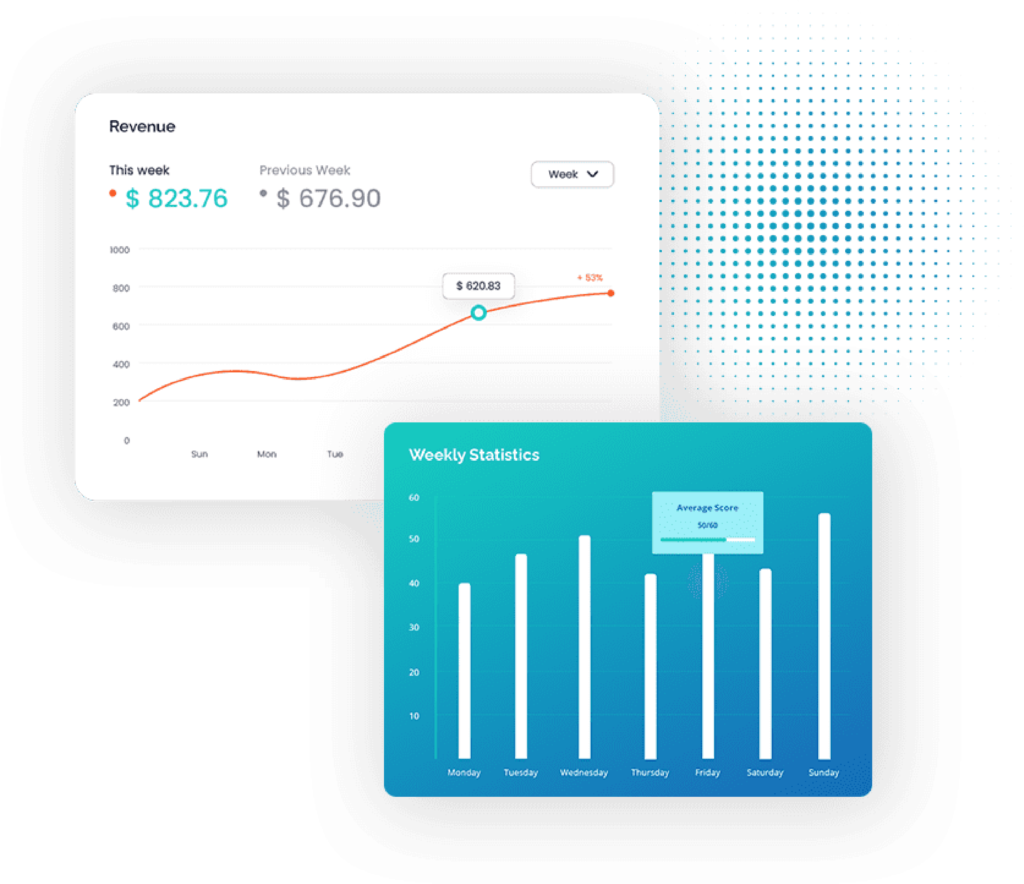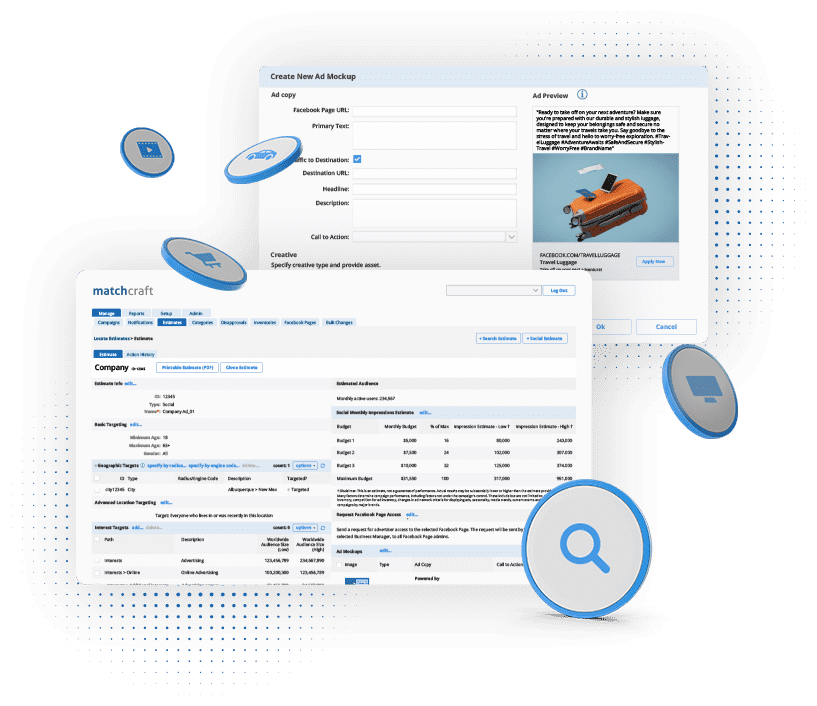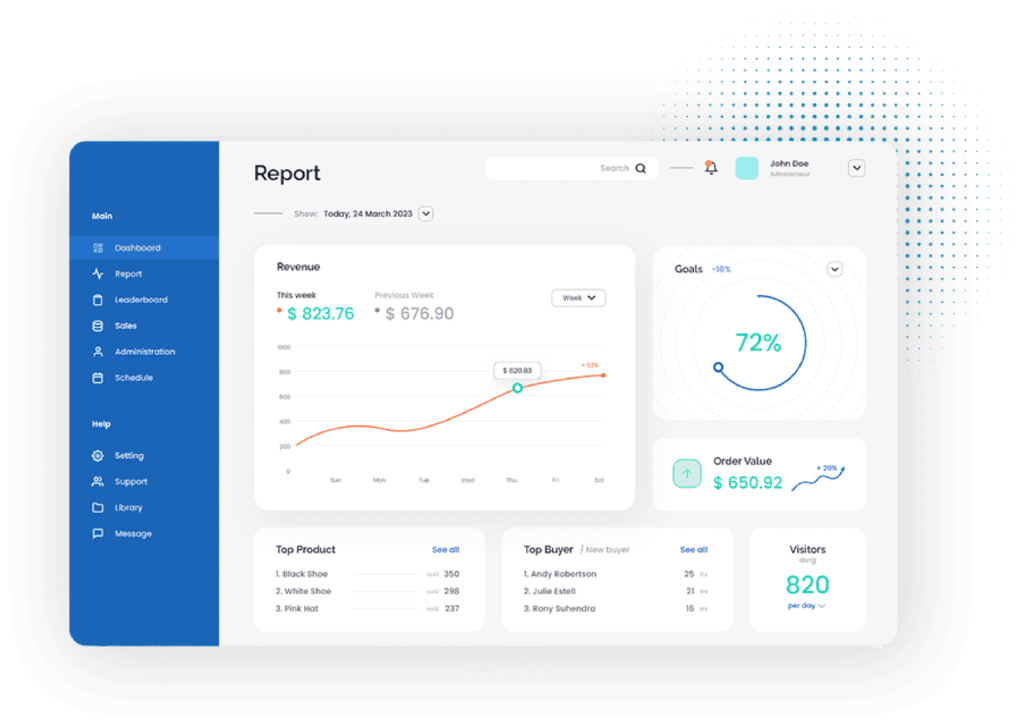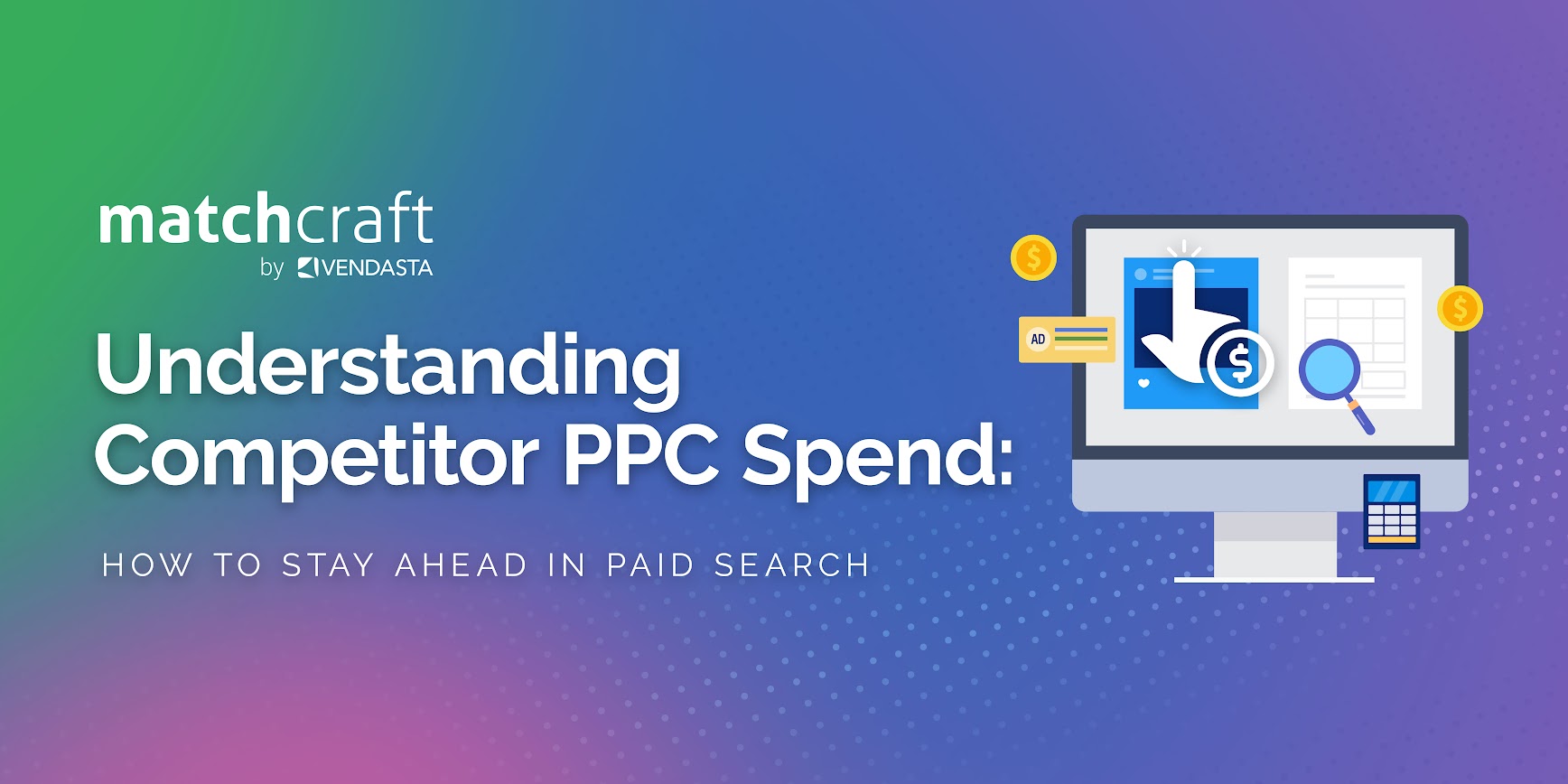Pay-per-click (PPC) advertising has become increasingly competitive, making it essential for advertisers to outsmart their competitors. But how do you crack the code? Understanding competitor PPC spend is a smart strategy to stay ahead in PPC ads.
Competitor PPC spend is the amount of money your competitors allocate to their paid search campaigns. Knowing how much they invest gives you valuable insights into their strategy, such as which keywords they’re targeting and how aggressively they’re bidding.
So, how do you gain insights into competitor spend? We’ve got you covered. This article explores the key concepts of competitor PPC spend, tools and methods used in competitive PPC intelligence, and the best practices.
What Is Competitor PPC Spend?
Competitor PPC spend refers to the process of monitoring and analyzing how much your competitors are investing in paid search advertising. It’s all about understanding the budget they allocate to their Google Ads, Bing Ads, or other platforms to gain visibility and drive clicks.
With a better understanding of your competitors’ PPC budgeting, you can fine-tune your own advertising efforts, whether that’s by adjusting your bids to win on critical keywords or shifting focus to more cost-effective opportunities they might be overlooking. Think of it as peeking into their playbook to stay one step ahead!
The Importance of Monitoring Competitor PPC Spend
Tracking your competitor’s PPC spend is like having a secret weapon in your digital marketing toolkit.
Let’s dive into how this can work for you!
Identify Trends and Opportunities
Keeping an eye on competitor PPC spend helps you uncover keyword opportunities and identify gaps in the market that you might not have spotted otherwise.
For example, if you notice your competitors are pouring a lot of money into a particular set of keywords, it could indicate high value or conversion potential for those terms. On the flip side, if they’re avoiding certain keywords that align with your business, it might signal a chance for you to swoop in and dominate that space with less competition.
It’s all about finding those sweet spots—where competitors are spending too much or too little—and using that insight to optimize your own keyword strategy. This can help you avoid overspending where competition is fierce and capitalize on less saturated but equally valuable opportunities.
Benchmarking Your PPC Strategy
While understanding your competitor’s PPC budgets, it’s also essential to set realistic goals for your own PPC campaigns.
For instance, if competitors are consistently outbidding you on crucial keywords, you might need to adjust your budget to compete in that space. Alternatively, if you’re over-allocating in areas where your competitors aren’t investing much, it could be a sign to reassess and redistribute your spend more efficiently.
Anticipating Market Shifts
One of the coolest benefits of monitoring competitor PPC advertising costs is the ability to anticipate market shifts before they happen. When you notice sudden spikes or drops in your competitors’ ad budgets, it can give you valuable early signals about changes in consumer demand, upcoming product launches, or seasonal shifts in the market.
If a competitor suddenly increases spend in a specific area, it might be a sign they’re gearing up for a big campaign or reacting to an emerging trend. Being aware of these moves allows you to respond proactively—whether that means preparing for a competitive push, adjusting your own strategy, or jumping on a trend before it peaks.
Pro Tip: Leverage MatchCraft’s PPC estimator tool that provides intelligent budget forecasts and spend estimates.

Tools & Methods for Competitor PPC Spend Analysis
Manual Research and Its Limitations
One approach is the good ol’ manual method. You can run Google searches, see which ads pop up, and try to estimate what your competitors are spending based on the frequency and positioning of their ads. You might also take a peek at their landing pages to get a sense of their ad copy and strategy.
The big downside? Manual research can be incredibly time-consuming, and it doesn’t offer the depth of insight you really need. You won’t get exact spend numbers, keyword targets, or detailed trends, making it hard to draw actionable conclusions. Plus, you’re limited by what’s visible in the moment—there’s no historical data or real sense of overall strategy.
Third-Party Tools for PPC Spend Insights
Thankfully, there are third-party tools that can do the heavy lifting for you! Tools like MatchCraft, SEMrush, SpyFu, and iSpionage offer competitor PPC insights by tracking keyword performance, ad spend, and PPC bid management strategies across search engines.
However, while some of these tools are incredibly powerful, they often exist in silos, meaning the data might not integrate seamlessly with your own marketing platforms.
That’s where MatchCraft steps in! MatchCraft not only offers a robust PPC account management platform but also provides seamless integration capabilities that allow you to pull competitor data directly alongside your own campaigns. Instead of hopping between different tools and piecing together insights manually, you can get a holistic view of your PPC landscape all in one place.

How to Use Competitor PPC Spend Data to Improve Your Strategy
Competitor PPC spend data is a goldmine for refining your own paid search campaigns.
Here’s how you can leverage this information to supercharge your strategy:
Keyword Strategy Refinement
Knowing which keywords your competitors are bidding on can be a game-changer for your keyword research and strategy. If you see competitors consistently targeting certain high-performing keywords, it might be time to either join the battle or look for alternative, less competitive terms that still drive results.
On the flip side, if they’re avoiding certain keywords, it could indicate a gap that you can exploit. Consider using MatchCraft’s keyword recommendation feature that uses competitor spend data to suggest winning keywords that align with your business goals.
Adjusting Your Bidding Strategy
Competitor PPC spend data can also provide key insights into how you should adjust your bidding strategy. For example, if you notice competitors ramping up spend on certain keywords, it’s a signal that those terms are valuable—potentially worth bidding higher on to maintain visibility. Or, if the competition is low, you might strategically reduce your bids without sacrificing performance.
MatchCraft’s bidding tools take this to the next level. By using data from your competitors’ spending patterns, MatchCraft helps businesses bid competitively without overspending. It ensures that you’re always in the game for the right keywords at the right price, so you can get the best return on your ad spend.
Ad Copy and Creative Adjustments
Analyzing your competitors’ ad copy can inspire new ideas and creative directions for your own campaigns. By seeing what’s working for them—whether it’s a particular offer, headline, or tone—you can tweak your own ad copy to stand out. The goal here isn’t to copy them, but to differentiate your brand by highlighting your unique value proposition.
With MatchCraft’s ad copy and keyword library, you get access to real-time data on what keywords are performing. This helps you craft competitive and engaging ads that resonate with your audience while staying one step ahead of the competition.

Best Practices for Competitor PPC Spend Analysis
Identify Direct Competitors
When analyzing competitor PPC spend, it’s important to focus on tracking direct competitors—those who target the same audience and keywords as your business. These are the companies vying for the same customer base, making their strategies highly relevant to your own campaigns.
By zeroing in on direct competitors, you can get insights that truly matter, such as:
- Keywords they’re investing in.
- How aggressively they’re bidding.
- What their ad copy looks like.
At the same time, it’s important to avoid wasting resources by monitoring every business out there. Stick to those whose strategies align with your niche. Tracking irrelevant competitors can lead to misguided decisions, as their goals, audiences, and keyword focus may differ significantly from yours.
Monitor Competitor Spending Regularly
To stay ahead in the competitive PPC landscape, it’s essential to track competitor spending on a consistent schedule. Regular monitoring allows you to spot important changes, such as shifts in keyword focus or bidding adjustments that could signal new strategies or emerging trends.
By maintaining a routine check on their spend, you can identify patterns over time—like seasonal spikes, promotional pushes, or even reactions to market changes. These insights help you proactively adjust your own strategy, whether it’s ramping up bids on key terms or exploring new keyword opportunities your competitors are leaning into.
Set Clear Goals for Analysis
Before diving into competitor PPC analysis, it’s crucial to define clear goals for what you want to achieve. Whether it’s improving your ROI, lowering your cost-per-click (CPC), or identifying new keyword opportunities, having a specific objective will guide your analysis and ensure you’re focusing on the most relevant data.
These goals act as a roadmap for refining your PPC strategy. For example, if your goal is to lower CPC, you’ll prioritize tracking competitors’ bids to find more cost-effective keywords. Or, if you’re aiming to boost ROI, you might focus on analyzing which keywords and ad copy are driving conversions for competitors.
Analyze Both Keywords and Ad Copy
When conducting competitor PPC analysis, it’s important to go beyond just tracking their ad spend. Evaluate both the keywords your competitors are targeting and the performance of their ad copy. This dual approach gives you a deeper understanding of their strategy—revealing not only where they’re investing but also how effectively they’re communicating with their audience.
Leverage Automated Tools
To streamline competitor analysis and gain deeper insights, it’s smart to use PPC automation tools. These tools allow you to efficiently track competitor spending, monitor bidding patterns, and analyze keyword performance—all without the need for time-consuming manual research.
With automated tools like MatchCraft, you can take this a step further. MatchCraft’s automated competitor PPC reporting and tracking features provide comprehensive data on your competitors’ strategies with minimal effort on your part.
Benchmark Against Competitors
Benchmarking your performance against your competitors is essential for identifying areas where you can improve. By comparing key PPC metrics like keyword rankings, CPC, and overall spend, you can get a clear picture of how your campaigns stack up.
Use insights from competitor PPC spend to adjust your bids, refine your targeting, and optimize your budget allocation. For example, if competitors are outbidding you on high-value keywords, you may need to adjust your bids to stay competitive. Alternatively, spotting where competitors are overspending might allow you to focus on more cost-effective opportunities, helping you maximize ROI while staying within budget.
Adapt to Market Shifts
To stay competitive in the fast-paced world of PPC, it’s crucial to remain agile and adjust your strategy in response to competitor moves. If you notice shifts in your competitors’ spending or keyword focus, it could indicate a new trend, product launch, or shift in market demand. By quickly adapting to these changes, you can maintain your visibility and seize opportunities before they become too competitive.
MatchCraft gives you a significant advantage here with its real-time alerts. These alerts notify you of important competitor activity or market shifts, allowing you to make timely adjustments to your bids, keywords, and ad strategies.
How MatchCraft Helps You Outpace Competitors in PPC
Whether it’s PPC search ads, display ads, auto ads, or social ads, MatchCraft takes the complexity out of staying competitive in PPC by offering powerful tools.
Let’s dive into how MatchCraft helps you stay ahead!
Collecting and Analyzing Competitor Data
MatchCraft continuously tracks and gathers data on your competitors’ PPC activities, from keyword bids to ad spend. This data is then analyzed and organized to show you how your competitors are positioning themselves in the paid search landscape.
You get insights into what keywords they’re targeting, how much they’re spending, and what strategies they’re using to attract clicks—all without the need to dig through endless spreadsheets or external tools.
Intuitive Reporting Features
What sets MatchCraft apart is how it presents this wealth of data through its intuitive reporting features. With user-friendly dashboards and reports, it becomes easier for you to see how your PPC performance stacks up against your competitors in real-time.

Automated Monitoring and Alerts
One of the most powerful features of MatchCraft is its automated monitoring and alert system. Instead of constantly checking in on your competitors, MatchCraft does the heavy lifting for you, monitoring changes in competitor spending patterns and keyword shifts.
Whenever there’s a significant change in your competitor’s PPC activity, you’ll receive real-time alerts, giving you the opportunity to adjust your strategy and bids on the fly. This ensures that you’re never caught off guard by sudden shifts in the market and always have the latest data at your fingertips to stay competitive.
Conclusion
Staying on top of competitor PPC spend is essential for any business looking to refine and improve its paid search strategy. Regularly analyze your competitors’ keyword choices, spending patterns, and ad copy to uncover valuable insights that help you stay competitive and optimize your own campaigns.
With MatchCraft by your side, you have the advanced tools needed to outpace your competition. From real-time insights and intuitive reporting to AI-powered recommendations, MatchCraft empowers you to make smarter, faster decisions and continually refine your PPC strategy based on real-world data.
Ready to take your PPC campaigns to the next level? Schedule a demo today and see how MatchCraft’s powerful competitor insights can help you in the PPC landscape!
Author: Maria Selvam Amalraj
